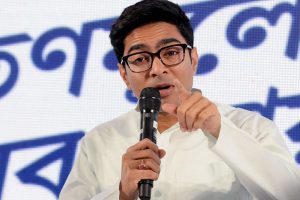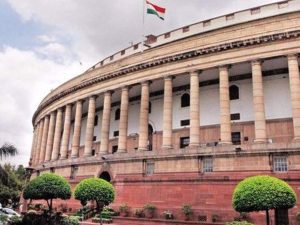India–Pakistan Engagement Belongs Only on the Battlefield: Abhishek Banerjee
Kolkata, July 29, 2025 — In a statement that has stirred both political circles and the public, Trinamool Congress (TMC) national general secretary and Member of Parliament, Abhishek Banerjee, firmly declared that India’s engagement with Pakistan should be limited strictly to the battlefield. Speaking before departing for the monsoon session of Parliament, Banerjee said the only goal of such engagement should be the reclamation of Pakistan‑occupied Kashmir (PoK).
A Bold Stance
Abhishek Banerjee’s remarks came on the heels of the announcement that India and Pakistan would face each other in the upcoming Asia Cup. Rejecting the notion that sporting ties can be separated from politics, he argued

that playing cricket or engaging in diplomacy with Pakistan undermines the memory of civilians and security forces who have suffered in terror attacks.
“Let justice, not entertainment, be our goal. If there is to be a match, let it be fought at the Line of Control, and let PoK be the only trophy worth winning,” Banerjee said passionately, framing the issue not as a question of rivalry but of national integrity.
Context of Tensions
Abhishek Banerjee’s statements come in the aftermath of the recent Pahalgam terror attack that claimed dozens of civilian lives, reigniting debates about cross-border terrorism and India’s policy toward Pakistan. Many see Banerjee’s words as both a response to public anger and a strategic effort to shape the national conversation around security and sovereignty.
The TMC leader, who is also the nephew of West Bengal Chief Minister Mamata Banerjee, emphasized that dialogue with Pakistan is only justified if it focuses solely on reclaiming PoK. In his view, any other engagement dilutes India’s moral stance and emboldens those responsible for harboring terrorists.
Extending His Message Beyond Borders
Abhishek Banerjee’s recent overseas speeches have also carried this message. Addressing Indian diaspora gatherings earlier this year, he argued that the global community must see Pakistan for what it is: a state that openly supports terrorism against its neighbors. According to him, evidence of Pakistani military figures attending funerals of known terrorists should convince the world that no genuine peace is possible.
He called on Indians living abroad to advocate for this stance internationally, insisting that the fight against terrorism must not be limited to domestic debates.
Critique of Domestic Politics
Turning his focus to the domestic front, Banerjee also criticized the central government’s handling of intelligence and border security. He questioned why, despite repeated warnings, attacks like the one in Pahalgam continue to occur. According to him, the government must prioritize thorough investigations and accountability over political narratives.
He further voiced concern about recent efforts to revise voter lists, suggesting they might be an attempt to introduce controversial measures through the back door. His remarks underscored a larger worry that political focus on electoral advantage could distract from national security priorities.


What It Means Politically
Banerjee’s comments come at a time when the opposition is seeking to consolidate its stance on foreign policy and national security, traditionally considered strongholds of the ruling party. His unequivocal tone signals that sections of the opposition are willing to adopt a more assertive approach toward Pakistan.
While some may view his words as rhetorical, others see them as an attempt to capture the mood of a population frustrated with terror attacks and perceived policy hesitations.
Looking Ahead
As the Asia Cup approaches, the debate over whether India should play Pakistan on the cricket field is likely to intensify. Banerjee’s position—linking any engagement directly to national security and territorial integrity—challenges traditional diplomatic and sporting norms.
In Parliament, these views are expected to fuel further discussion on the government’s broader Pakistan policy, especially concerning PoK and cross-border terrorism.

For now, Abhishek Banerjee’s message remains clear: when it comes to Pakistan, India’s engagement should not be through dialogue tables or stadiums—but through a singular, focused effort to reclaim what he believes rightfully belongs to the nation.
Also read: https://channel6network.com/parliament-monsoon-session-highlights-sindoor/

